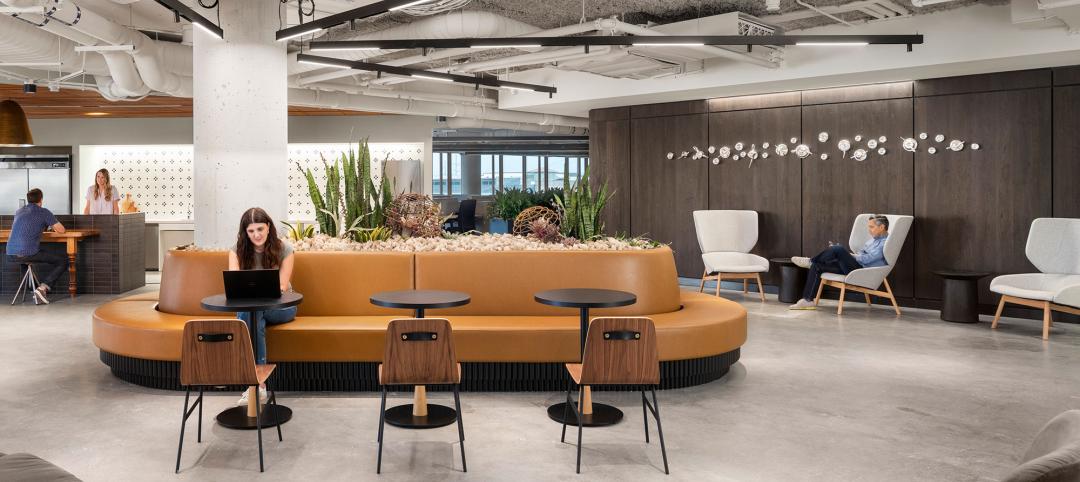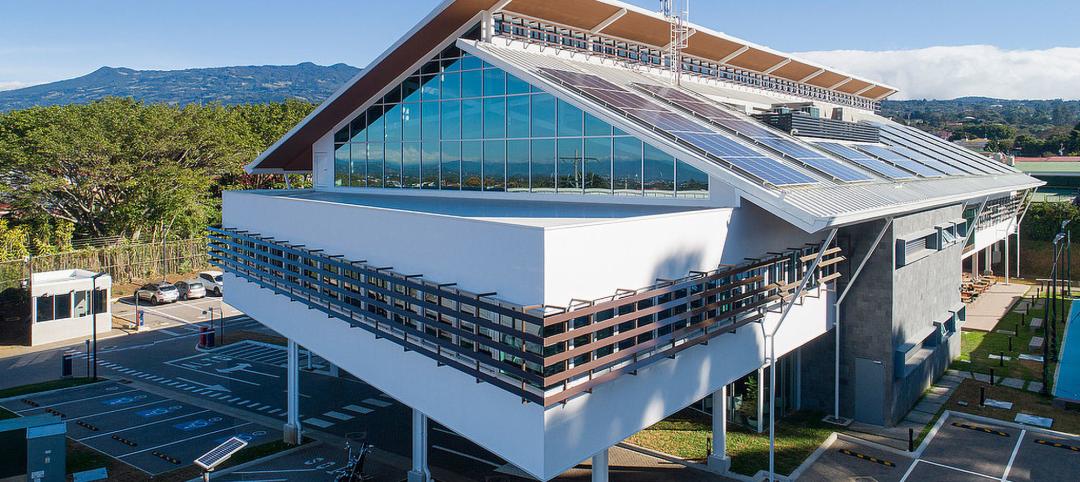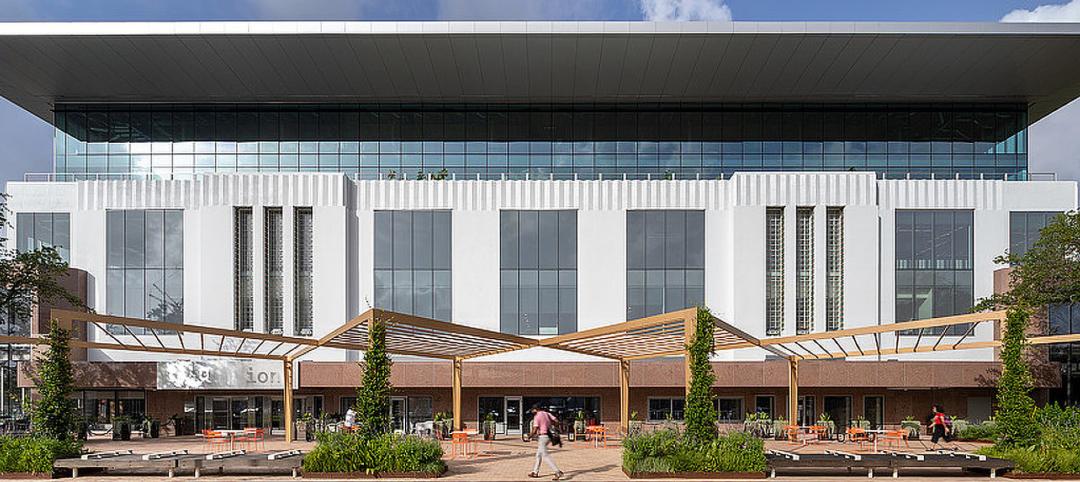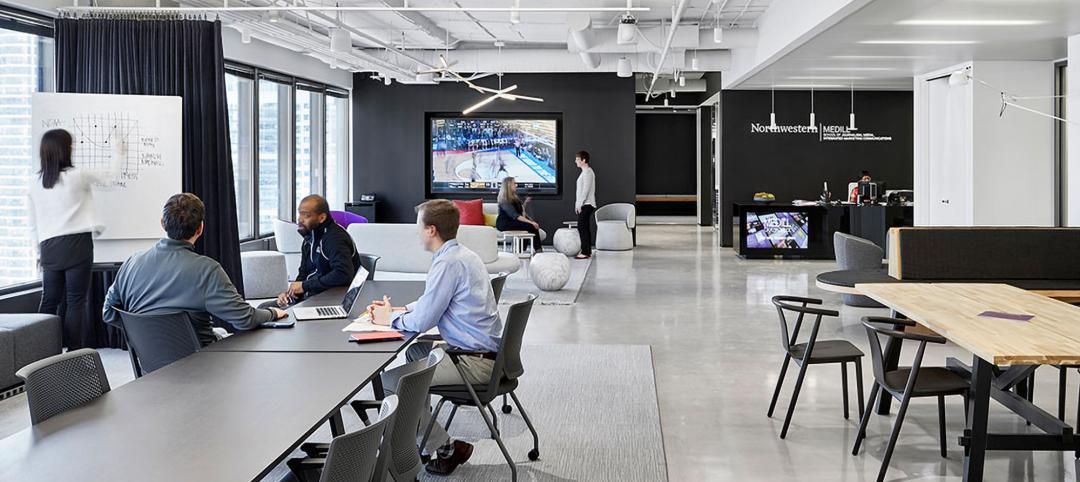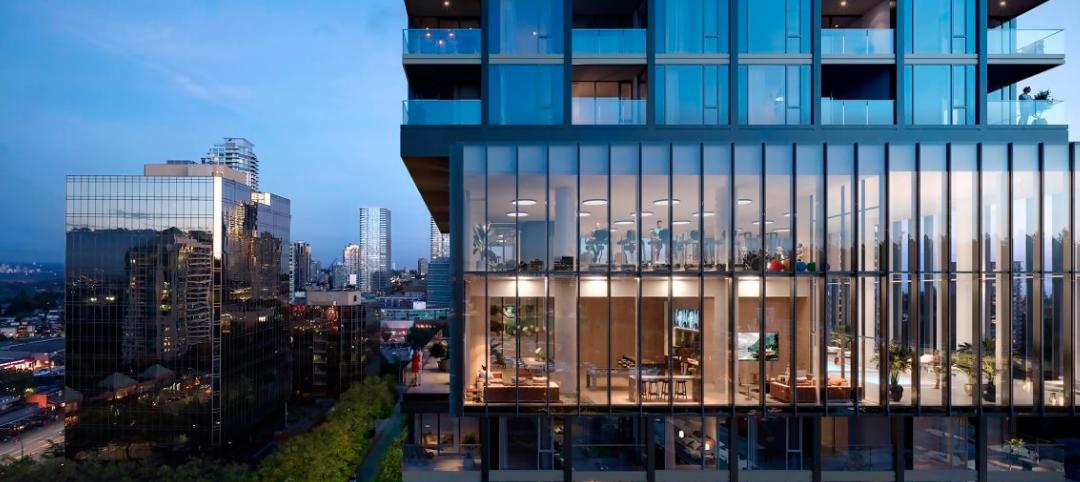In 2015 at the COP21 conference in Paris, Gensler joined governments and private corporations in signing the Paris Pledge for Action, agreeing to significantly reduce carbon emissions in our global portfolio of work. As the world’s largest architecture and design firm, we recognized the potential of our impact and saw this as an opportunity.
With hundreds of millions of square feet of buildings and interior design projects in the pipeline annually, we believe our impact and role in reducing energy demand is critical. We signed the Paris Pledge in solidarity with our clients, communities, and governments who are all committed to taking action.
That was then, and this is now.
Just last month, the Intergovernmental Panel on Climate Change (IPCC) released a report reemphasizing the urgent need to reduce greenhouse gas emissions for all sectors by 2020. The report states that emissions must peak by the end of next year to keep the planet from heating 3ºC by 2100. This means that we all have just 18 months to take concrete actions to truly reduce emission levels. This analysis of only having until 2020 to make large-scale investments in order to achieve emissions goals is shared by the Global Commission on Adaptation, a group of leaders in business, politics, and science led by 8th Secretary General of the United Nations, Ban Ki-Moon and co-chaired by Microsoft co-founder Bill Gates and World Bank chief executive Kristalina Georgieva. In other words, this is a problem that must be solved today.
This message of taking immediate action was echoed by the real estate industry at the recent Urban Land Institute (ULI) Fall Meeting in DC last week where increasing climate destabilization is now forcing real estate development professionals to address scenarios that they have never encountered in the past. During the ULI conference, Harvard-trained economist and fellow at the Woods Hole Research Center, Spencer Gordon, stated that the climate change will have drastic effects on commercial real estate in near future, both jeopardizing the viability of development projects and altering our long-held notions of how financers value buildings and land. Additionally, he makes the case that the financial sector will soon be reluctant to offer long-term loans for some developments and “we will see a loss of commercial insurance in many places.”
Announcing the Gensler Cities Climate Challenge (GC3)
Gensler is doubling down on its commitment to combat climate change. Today we announce our commitment—and our challenge to the entire design industry—to meet an ambitious goal: the elimination of all greenhouse gases associated with the built environment.
Knowing that immediate action is required, we are fast-tracking our goals and taking immediate aggressive steps for all our work to become completely carbon neutral over the next decade. This entails our sizable annual portfolio being designed for both net-zero energy in operations and net-zero impact in construction.
Currently, we design approximately 1.25 billion square feet every year. If our whole portfolio were carbon neutral in its operations, our work would save 21.5 million metric tons of CO2, which is equivalent to keeping 5 million cars off the road every year. According to the Environment Defense Fund, the social impact of this savings would equate to nearly a billion dollars in annual healthcare costs, food prices, and avoided property damage.
As the world’s largest design firm, Gensler’s impact in creating a resilient future like no other design enterprise. We challenge all other designers, architects, developers and anyone in a position to influence the built environment to join our mission. We ask that the entire building sector join us in making sure our future is everyone’s future.
The Tangible Impact of Our Design Choices
Gensler is already leading the charge for the built environment to ensure that the global average temperature increase stays below 1.5ºC. We more than doubled our designed impact between 2014 and 2016 from a projected 4 million metric tons of C02 saved each year in 2014, to more than 11 million metric tons in 2017.
CO2 relates to climate change in the following way: Increases in CO2 atmospheric levels can lead to warmer temperatures, changes in precipitation, and shifting climate patterns. Since the energy demand for buildings makes up at least 30 percent of all global CO2 emissions, improving our efficiency in this are is critical to the overall impact of climate change mitigation efforts. By requiring less fossil fuel and embodied energy to build, coupled with resilient building design, the building industry can be a major player in a pathway to keep average temperature increases under critical levels.
According to the latest Gensler Impact by Design report, set to be released later this year, our work is already performing 48 percent better than baseline performance. Our 2018 portfolio, which included 7,244 interior and building projects, is estimated to have saved 14.6 billion kWhs/yr compared to baseline CEBEC target performance, equivalent to approximately 10.31 million metric tons of CO2 saved from being emitted into the atmosphere. To put this into perspective, our current actions are tantamount to preventing the burning of 11.3 billion pounds of coal or taking 2.6 coal power plants offline for a year.
We continue to lead by example and push other architecture and design firms to play a more significant role in battling climate change. Moreover, given the dire situation laid out in the IPCC report, our goal is to get every project we design to net-zero for energy and water consumption as quickly as possible.
Going Beyond a Public Commitment
There is adding pressure for the land use and real estate industry to take action. In addition to heat waves slowing construction, one report concluded that real estate investors have not prepared their properties for catastrophic weather events and could be vulnerable to steep costs. Additionally, extreme weather events are damaging residential developments, exacerbating the affordable housing shortage.
Just a few weeks ago, the Business Roundtable of top CEOs in the country, issued a signed statement that companies should focus on all stakeholders, including a corporation’s duties to customers, their communities, their suppliers, and their employees. The agreement, signed by 200 top CEOs, agreed that maximizing profits in all situations can no longer be the singular goal of corporations.
As part of our commitment, Gensler will participate in the special & nbsp; climate summit this month in New York organized UN Secretary-General Antonio Guterres, who has called on all leaders to partake in the talks and present “concrete, realistic plans to enhance their nationally determined contributions by 2020, in line with reducing greenhouse gas emissions by 45 percent over the next decade.” There, as participants in these talks, we will publicly introduce Gensler’s new challenge for the design industry.
More from Author
Gensler | Apr 15, 2024
3 ways the most innovative companies work differently
Gensler’s pre-pandemic workplace research reinforced that great workplace design drives creativity and innovation. Using six performance indicators, we're able to view workers’ perceptions of the quality of innovation, creativity, and leadership in an employee’s organization.
Gensler | Mar 13, 2024
Trends to watch shaping the future of ESG
Gensler’s Climate Action & Sustainability Services Leaders Anthony Brower, Juliette Morgan, and Kirsten Ritchie discuss trends shaping the future of environmental, social, and governance (ESG).
Gensler | Feb 15, 2024
5 things developers should know about mass timber
Gensler's Erik Barth, architect and regional design resilience leader, shares considerations for developers when looking at mass timber solutions.
Gensler | Jan 15, 2024
How to keep airports functional during construction
Gensler's aviation experts share new ideas about how to make the airport construction process better moving forward.
Gensler | Dec 18, 2023
The impacts of affordability, remote work, and personal safety on urban life
Data from Gensler's City Pulse Survey shows that although people are satisfied with their city's experience, it may not be enough.
Gensler | Nov 16, 2023
How inclusive design supports resilience and climate preparedness
Gail Napell, AIA, LEED AP BD+C, shares five tips and examples of inclusive design across a variety of building sectors.
Gensler | Oct 16, 2023
The impact of office-to-residential conversion on downtown areas
Gensler's Duanne Render looks at the incentives that could bring more office-to-residential conversions to life.
Gensler | Sep 13, 2023
Houston's first innovation district is established using adaptive reuse
Gensler's Vince Flickinger shares the firm's adaptive reuse of a Houston, Texas, department store-turned innovation hub.
Gensler | Aug 7, 2023
Building a better academic workplace
Gensler's David Craig and Melany Park show how agile, efficient workplaces bring university faculty and staff closer together while supporting individual needs.
Gensler | Jun 29, 2023
5 ways to rethink the future of multifamily development and design
The Gensler Research Institute’s investigation into the residential experience indicates a need for fresh perspectives on residential design and development, challenging norms, and raising the bar.


